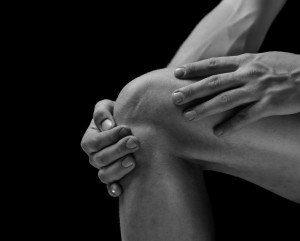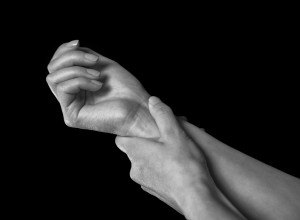Elated that this post was published on The Mighty: What to Know to Understand the Experience of Having Chronic Pain, which if you’re yet to follow, is both a font of information and a reassuring resource for those of us with disability, chronic pain & illness.
Chronic pain changes everything in life, most entirely invisible to outsiders. Many people do not seem to understand chronic pain or just how extensive its effects are, how exhausting always being in pain is, how displacing and uncertain, nor how hard that pain makes it to concentrate and think.
They cannot see that sufferers have attempted numerous treatments, approaches and alternative therapies to heal and manage that pain, and know what therapies have worked or not worked for them. While the depth of loss and longing for our lives before it began becomes as constant as the pain is.
Life with chronic illness and pain is so vastly different to that of healthy people. Every single act must be weighed against the pain, rest, recovery, and pacing is a constant evaluation too. There are so many considerations healthy people do not have, alongside symptoms themselves, the attitude of others, as well as our own complex inner feelings.
The chronic pain patient wants those around them to empathise with their situation rather than be sympathetic, to have understanding, not pity, though sadly, understanding can be extremely rare. Not that there aren’t compassionate souls who support us but because the ‘pain experience’ is hard to grasp.
In the spirit of informing those who wish to understand, here are some things that can enable you to do just that to help people who suffer from, often debilitating, chronic pain:
For those living with chronic pain, one of the greatest challenges is in dealing with attitudes, from our own attitude towards the pain and our personal situation to those from family, friends and sometimes even complete strangers. Our attitude is important as it deeply influences the efficiency of the coping strategies which evolve and determine our ability to function well in spite of pain.
Yet for almost everyone whose lives have been so drastically altered by chronic pain, the attitudes of others can be an ongoing challenge. Most people have experienced pain at some time in their lives and that pain would have likely been caused by an obvious event or condition, but even if it was intense pain, would have abated and eventually settled.
This experience will determine their attitude towards pain but unless the pain was prolonged for at least a few months or more they will have an inadequate idea or appreciation of what it is to live with chronic pain, and no matter how empathic, will not truly grasp the full, unimaginable nature of the situation, much less what it is to never know if the pain will ever end.
Worse still, people with the regular aches and pains of ageing assume that they know what it is like but unless the pain is severe enough to completely dismantle the person’s life, it is far from the same experience, physiologically or emotionally.
Chronic Pain Sufferers Talk Differently from Those Not in Pain
Chronic pain sufferers often talk differently from those free of constant pain, many people forget that after many years of pain, we just want to appear normal — so we modify our behaviour, and avoid letting people see just how much pain we are really in.

A numeric pain scale is used as a quantitative measure to identify pain intensity for medical professionals, with description of pain being on a scale from 1 to 10 (1 being “no pain at all” and 10, the “worst pain ever felt”).
After many years of chronic pain and despite it often worsening, this scale may change and shift, instead being more reflective of individual tolerance to ongoing pain, especially in progressive conditions; what was once an “8” is now a “6” for instance — people can only measure pain against the most pain they have experienced.
Yet as for most this was acute pain, a different physiological process, and even if severe, still brief when compared to constant pain of CRPS for example or that of central sensitisation, which occurs in many complex pain conditions including Fibromyalgia, making such subjective understanding by those without chronic pain all the more difficult.
Never assume the chronic pain patient is not experiencing pain when they say that they are fine.
Hiding the pain due to lack of understanding in others, protecting others (from feeling uneasy or helpless, after all, no one likes seeing someone they care for in pain), or just to fit in is a natural response to ongoing pain. Accept that words are often inadequate to articulate how the chronic pain sufferer is feeling.
Recall a time when you were in pain, then multiply the intensity and try to imagine that pain is present twenty-four hours a day, every day, without any relief in sight. It’s hard to find the words for that kind of pain or experience.
Respect the Chronic Pain Sufferer’s Physical Limitations
With chronic pain and invisible illness the uncertain nature of our fluctuating symptoms is as confusing to us as patients as it is those around us. Our mobility, pain levels and ability to cope with movement can be erratic, unpredictable, and frustrating for all involved.
Every pain patient does not know, from day-to-day, how they are going to feel when they wake up and each day has to be taken as it comes. In many cases, they don’t know from minute to minute. This is one of the hardest and most frustrating components of chronic pain. Using pacing for pain management is paramount but even with the most meticulous planning, sometimes the pain flares or is just too fervent.
Being able to stand up for three minutes doesn’t necessarily mean we can stand up for twenty minutes, or an hour, or give you a repeat performance.
Just because we managed to sit up for an hour yesterday, does not mean we are able to do the same today.
Understand the Difference Between Happy & Healthy
When you have a nasty bug or an injury that suddenly hampers your life, you may feel frustrated and miserable. Chronic pain patients have experienced pain from 6 months to many years, even decades, without a break. That changes you. It changes how you respond to the pain, as well as how much and how well you hide it.
Pain has caused us to adopt coping strategies that do not necessarily reflect the real level of pain we are feeling. When we see our loved ones, we are happy. Happy is not the same as healthy but we choose to hide our pain and suffering, for others as well as ourselves. Sadly we are often misjudged for it, especially when they rarely see how excruciating and debilitating the consequences are afterwards.
Many struggle to believe you can be in severe pain if you are happy, laughing or simply not voicing the pain in the same way someone without chronic pain would expect, but voicing it does nothing for the pain, in fact focusing on it can make it worse, and only serves to make others feel uncomfortable. Laughter is also one of the most enjoyable ways to manage it and cope.
Chronic pain and illness has already taken away so much, stripping our lives to their barest bones. Respect that the person who is in pain is trying their best. Associating illness with exclusively feeling unhappy or thinking it impossible to be in pain and still find joy is a great source of misunderstanding.
When someone living with chronic pain says they are in pain—they are in pain. They are merely coping, sounding happy and trying to look normal.
Be Patient
If you’re impatient or want someone with pain to “just get on with it” you risk laying a guilt trip on a person who is already suffering with pain, undermining their determination to cope.

They likely have the will to go out or engage in another activity but have neither the strength nor the coping capacity as a result of severe pain. A chronic pain patient may need to cancel a commitment at the last minute—please do not take it personally.
Instead, always remember how blessed you are to be physically able to walk, sit, stand, run, dance and do all the things that you can do and how sad the patient is at having to cancel [again] due to severe pain, illness and disability.
It’s important to remember that the pain is in charge, not your loved-one or associate. While you could get annoyed, it shows a complete lack of understanding of chronic pain and all they endure on a moment to moment basis.
Always be understanding if the chronic pain sufferer says they have to sit down, lie down, stay in bed, or take medication RIGHT NOW. It means that they do have no choice but to do it right now. Chronic pain does not forgive or wait for anyone. We’re already hiding immense pain, when it flares up, it becomes unimaginable.
Chronic Pain Changes How the Body Processes Pain
“Pain itself often modifies the way the central nervous system works, so that a patient actually becomes more sensitive and gets more pain with less provocation. That sensitization is called “central sensitization” because it involves changes in the central nervous system (CNS) in particular — the brain and the spinal cord,” says Science writer Paul Ingraham of PainScience.com.
“Sensitized patients are not only more sensitive to things that should hurt, but also to ordinary touch and pressure as well, which obviously should not hurt. Their pain also “echoes,” fading more slowly than in other people. This neurological meltdown is such a consistent complication of other painful problems that some researchers now believe central sensitization is actually a major common denominator in most difficult pain problems.”
The changes of central sensitization occur after repeated experiences with pain (the brain and CNS is activated and sensitized by repeated stimuli to become more excitable). Research shows that repeated exposure to a painful stimulus will change pain threshold and result in a stronger pain response from less provocation.
Noise, Crowds and Other Stimuli Make Pain Skyrocket
Another consequence of chronic pain altering how we process pain is that noise, crowds and other stimuli cause intense increases in its severity. This is also so hard to explain, especially when in a crowd or overstimulating situation and another source of misunderstanding.
Sound causes pain but when that becomes noise, it intensifies. When then fused with all the other stimuli from a crowd, it opens the pain gates and overstimulates our nervous systems, making the pain skyrocket, in turn exacerbating brain fog, so we’re left even less able to explain… or escape it. It can become so complicated, we may avoid it entirely, no matter how rare or deeply we long to go out.
Be Helpful
Much as holding onto our independence is so dear to us, frequently we need support in more obvious ways. Living with chronic pain means we depend on healthy people to assist us or visit when we’re too pained-up and sick to leave our home.
Without some degree of support, so much is left undone, and often is, for much like our pain and symptoms, this support can fluctuate. If you care about someone living with pain, want to help but are unsure how, be specific.
A general “let me know if you need anything” is obviously compassionate and deeply appreciated but tends to result in our not accepting it, being too proud or even feeling shame for needing this help. But a specific question, like: “I’m going to the supermarket, can I pick something up for you?” is essentially the same offer but one we’re more likely to accept.
It also doesn’t leave us feeling indebted in ways we cannot repay. We may need help with shopping, cooking, cleaning, getting to the doctor or collecting medication. Some may need help with their children. Changing bed sheets for instance is an immense or impossible task in pain but one so deeply appreciated.
You can also crucially help loved ones so isolated by chronic illness and pain stay tethered the aspects of life that they miss and desperately want to be a part of again. You can be an immensely healing link to the normalcy of life and support them.
Being able to talk about the pain openly with others is important — it’s such an all-encompassing part of our lives — though equally not talking about it or defining us exclusively by it is too and it helps us feel less isolated or distanced by the pain, offering a little taste of normal, which is after all what so many living with chronic pain and complex illness truly long for.
If you enjoyed this post, feel free to share the love & your thoughts below or in the Guest Book. ♥
Sign-up to the Princess Post & receive a free Flare-Up Toolkit here:
[avatar user=”jomalby” size=”thumbnail” link=”www.princessinthetower.org” target=”_blank”]Gentle hugs x[/avatar] ♥




Helemaal goed, het bovenstaande!
Duidelijk uitgelegd hoe het in een ideale wereld zou kunnen zijn…
Ik hoop dat er veel chronisch-pijnpatiënten mensen om zich heen hebben die, uit oprechte interesse, het hele stuk goed lezen..En in practijk brengen…..
Ik heb lieve mensen om me heen, maar voel al aan dat dit tòch te veel tekst is…tè veel vergt van het gemiddelde inlevingsvermogen van mensen zonder altijd pijn…en dan nog; pijn overal!
Even dacht ik; ik verplicht ze om het regelmatig door te lezen…..Maar dat is natuurlijk geen optie…behalve als je misverstanden, domme opmerkingen of vragen, zat bent..
Het is, en blijft, een eenzaam uitgeput-pijn lijden….Zonder er teveel de nadruk op te willen leggen….of op te vallen…
Thank you for your comment Marijke. Of course that is the case with so many but just as we live with a lack of understanding that separates us from them because of our pain, that doesn’t mean things should remain the same. This article contains a list of tips that have been shared across many pain patients’ blogs and I wanted to modify and include them here for the loved ones who do care enough to learn a little more. In turn, it is hoped, leading to greater understanding. You cannot of course force someone to read something but that isn’t the intention, instead to offer support and info when needed. I agree that it can be incredibly isolating living with complicated pain conditions and hope that this blog and site will offer you support. Also, reaching out and connecting with other brave warriors (and princesses) can be as nurturing for you as it is for them. Wishing you better days. ♥ Princess x
Yes..you are wright…thanks for your effort and the page looks beautuful!
Thanks Marjike, I’m so happy you like the site 🙂 That means a lot, thank you x
I am sorry…i had write it in englisch….
I like the the writing and i hope that there are chronic-painsufferers who have people around them who have the interest to read it all.
I am afraid that, most of them, has not the interest to read and remember…
And clearly can understand that it is not pain in the back, the wrist, knee…etc.
But in the body as a whole for people with Fibro. for instance..
I have kind people around me, but i am sure i cannot let them read the whole writing above..
and remember it clearly.
I can held it under there nose any time they are saying silly things…but no…i can’t.
It is lonely to live with it…not to let know your pain and tirerdness take over your live to mutch.
It makes you lonely…
This is so true pain is so isolating, and all we want is to be understood. I have CRPS which is a rare and not often known disease and people have a difficult time understanding what I have, as well as its limitations. I love your blog 🙂 please keep writing!
So happy you love the blog Isabella, that means so much 😀 I think as CRPS is so far out of the realms of normal experience and understanding, it truly adds to our burden. We don’t need others to have a little understanding for our own sake but our own safety too. With th symptoms and of course pain being so severe, it makes it incredibly isolating, both in terms of managing it and those limits but also as even when we’re able to be in company, we’re having an entirely different experience than those we love, forever trapped behind that invisible window. We also get so good at hiding the intensity that it only serves to increase that divide and therefore loneliness and isolation. Lovely to read your comment Isabella, gentle hug ♥ x
Really liked this blog…….
Thank you! So happy you do. 🙂
I love your writing skills and information about the chronic pain. I am also a blogger and love to write about the different health problems. Really Love your blog.
Thank you so much for your lovely comment, it means a lot. I’ll check out your blog too. ♥ x
Thank you for helping me not feel crazy. I see the disappointment in my friends’ eyes and have lost 2 friends. Yes, I am trying hard to find something to stop the pain; no, I don’t want your pity.
I love your articles. They are so informative and give me more of an understanding of what I am going through. Thank you!
You’re so welcome, Shellie. Thank you for your lovely comment, so glad they resonate with you. Gentle hug ♡
Hi, Wonderful post that you have provided and a great topic as well i really get amazed to read this. Its really good.
The article entitled, “This Is What Chronic Pain Sufferers Would Like You to Know”, was extremely well written and highly informative! As a person who has suffered from CRPS/RSD since 1999…..I Highly Recommend reading this article from the beginning all the way to it’s conclusion!
All spouses, mates, relatives and friends would gain a much better understanding of what those who suffer from CRPS/RSD have to endure! It is easy to say that you understand what a person suffering from our disease/condition. However unless you walk a mile in the shoes of a Chronic Pain Sufferer….you Really don’t Understand! This article should be Mandatory Reading for all those who are caregivers to anyone with Chronic Pain ❣ 🙏🔥🙏💜🙏
I have perused many CRPS/RSD websites over the years. Princesssinthetower.org is the best site I have come across since Keith Orsini’s rsdhope.org site closed down in June 2016! Thank you and keep up the great work of educating and informing all about Chronic Pain! ….Peace ✌ Out
amazing.. I’m speechless.. this is exactly what I want to say people! I’m suffering from chronic pain from the last 7 years! thank you..
What chronic pain sufferers want you to know was right on point. I wish all my family and friends could read this. Thank you for a perfect expression of what we feel every minute of every day.
This is a terrific article, which provides the crucial information any chronic pain patient needs to teach to the people around them. My contribution is this: anyone with pelvic pain, which refers to bladder, urethra, penile, scrotal, vulvar, vaginal, or rectal/anal pain must be aware of the diagnosis called “pudendal neuralgia”. It is a frequently misdiagnosed condition (which often is missed or ruled out even when it is present) by inexperienced practitioners. Amazingly, it can be diagnosed with a simple safety pin to test the symmetry of pudendal (crotch) sensitivity. If you are being treated for any condition of the pelvis and it is not getting better, try to find a practitioner who is familiar with pudendal neuralgia to check whether your diagnosis is correct. Anything done to a patient after an incorrect diagnosis is either waste or harm.
Thank you so very much helped me from going back down the rabbit hole .it is not a good place to be. Back in the driving seat !
Wish each and everyone moments of being free from pain , a chance to smile and the strength to carry on!
The prince in the tower!
Thank you for this article. Chronic pain is pretty much invisible and if I try to explain how it feels I’m called a hypochondriac or told that it’s all in my head (technically that’s true). Hopefully some non-pain sufferers will read this and be a bit more understanding. Thnx for sharing 😎
JULIE. 2004 STARTED MY JOURNEY THROUGH PAIN HELL. DRUNK DRIVER KILLED MY BEST FRIEND LEFT ME TO DIE. ACDF 2017. PLATYBASIA, CHIARI MALFORMATION, HEADACHES FROM HELL, FIBRO, CHRONIC FATIGUE, PTSD, MY DADS FRIEND GIVES ME NO SUPPORT. I LEARNED ART THERAPY, TAI CHI, MINDEFULNESS, DIET, COUNSELING, OTHER TOOLS. WE TALK ABOUT CTASTROPHIZING YOUR PAIN. I AM DISABLED FULL DISABILITY. 300.00 MONTH. NOW DUE TO THE ACDF I HAVE SCLERODERMA. PLEASE DO NOT GIVE UP FIND WAYS TO COPE IF YOU HAVE TO WALK AWAY FROM FAMILY MAKING YOUR LIFE HELL FIND A SUPPORT GROUP INSTEAD, BE WITH THOSE WHO UPLIFT YOU, BELIEVE YOU. TALK TO YOUR DOCTOR ABOUT PAIN. HUGS AND LOVE TO EVERYONE. JULIE
Thank you for writing this blog despite being in pain yourself. You provide a lot of great information and put into words exactly what I am trying to say.
I have had chronic pain for 17+ years due to damage to my trigeminal nerve from a botched dental implant. My pain used to be manageable but after the CDC “guidelines” came out my pain meds were cut by 60% and now I am in agony every day. I have tried to explain to the doctor that they are guidelines, not absolutes, but he will not listen. On top of that, I do not have a supportive family. My parents were very supportive but they have both passed away now so I feel very alone. I plan on giving this article to my husband and sisters so, hopefully, they can gain some understanding.
I am finding family members to be the worst. It is difficult for them to understand a person who suffers from Chronic pain and migraines. I try to plan dates to go out with my in-laws and my family also. I have set dates to go out, (non migraine days) to which they have cancelled as it does not suit them, they have then set other dates for which I have had to cancel due to migraine and chronic pain. It is difficult for them to understand the pain, as they have not experienced it. It’s difficult to remain calm when you are accused of “faking it”. Does anyone else have this problem?
I’m not sure how my daughter found you but you hit the nail on the head for her literally. She has suffered with migraines 24/7 since October 10, 2014. This is the best article I have read on the subject. Thank you for putting a voice to the pain!!! Bless you!!
I will show this to my family and hope it helps. My family doesn’t understand. There are things I can’t do anymore and they see that as me failing to to be a good husband and father.
I can’t keep on living like this. Not having the love and support of my family is has made my situation worse it should be.
thank you for this, I was ijured at work when the overhead lamp at work came lose swung down and hit me on the left side of my neck and head, brain contusion and whiplash and no one here in sweden gets it
Hey… Great information thanks for sharing such valuable information.
Very nice blog..glad to read this.
So happy you like it Caverta. Gentle hugs ♥ x